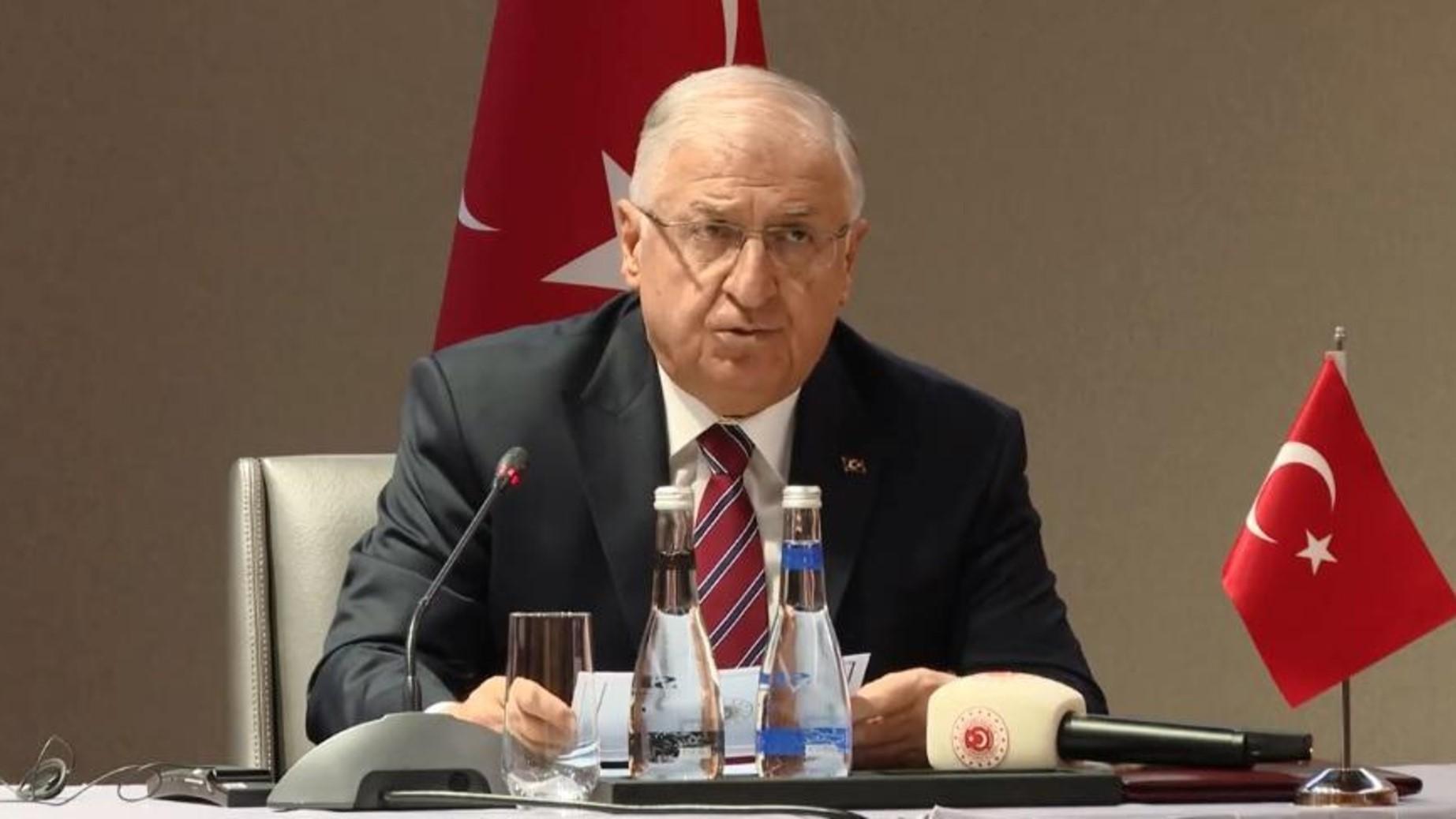
Defense Minister Yaşar Güler has advocated for a two-state solution as the only viable resolution to the longstanding conflict on the divided island of Cyprus.
"From now on, the only and definitive solution is based on the fact that there are two separate states and two separate peoples on the island, as the international public opinion has begun to express clearly," Güler said in an address during a parliamentary session late on Dec. 13.
Ankara considers finding a swift resolution to the dispute over the eastern Mediterranean island a top priority, according to Güler. The solution must respect the rights and security of Turkish Cypriots, he added.
The island has been embroiled in a protracted dispute between Greek Cypriots and Turkish Cypriots, with various diplomatic efforts failing to yield a comprehensive settlement.
The most recent initiative in 2017, under the auspices of guarantor countries Türkiye, Greece and the U.K., did not result in a resolution. The Greek Cypriot administration has been an EU member since 2004, while the northern part is recognized only by Ankara.
A buffer zone under U.N. control separates Turkish Cyprus from the rest of the island, dividing Nicosia, the capital shared by both sides. Recent tensions flared over a confrontation between Turkish Cypriot forces and U.N. peacekeepers in August, related to a road construction project in the buffer zone.
The road provides direct access to Pyla for Turkish Cypriots, bypassing a checkpoint at the northern border of a British military base.
The project, seen by Turkish Cypriot authorities as a "humanitarian objective" to facilitate easier access for Pyla village residents, sparked concerns from the Greek side, viewing it as a potentially military-driven move in a sensitive buffer zone. A recent agreement between Turkish Cyprus and U.N. peacekeepers regarding the disputed road has been met with satisfaction from Ankara.
In his address, Güler also highlighted the positive shift in Türkiye's relations with Greece, marked by President Recep Tayyip Erdoğan's recent visit to Athens. The visit resulted in a non-binding declaration of friendship and good neighborly relations, pointing to a significant improvement in historically strained relations.
Güler expressed a commitment to "maintaining this positive atmosphere" with Greece through high-level meetings and discussions, with already scheduled plans for a joint visit to the region affected by the deadly February earthquakes with his Greek counterpart, Nikos Dendias.
"We aim to resolve our problems in the Aegean and eastern Mediterranean in accordance with international law, good neighborly relations and the spirit of alliance," he said.
Recent positive gestures from both sides have paved the way for the upcoming discussions, signaling a departure from longstanding tensions rooted in territorial disputes, differences in maritime boundaries and divergent political ideologies.
The thaw in relations gained momentum following Greece's swift response to the devastating earthquakes in southeastern Türkiye, where they sent rescue teams and aid. The solidarity between the two nations deepened after a tragic train crash in northern Greece, with Ankara expressing condolences and providing assistance.